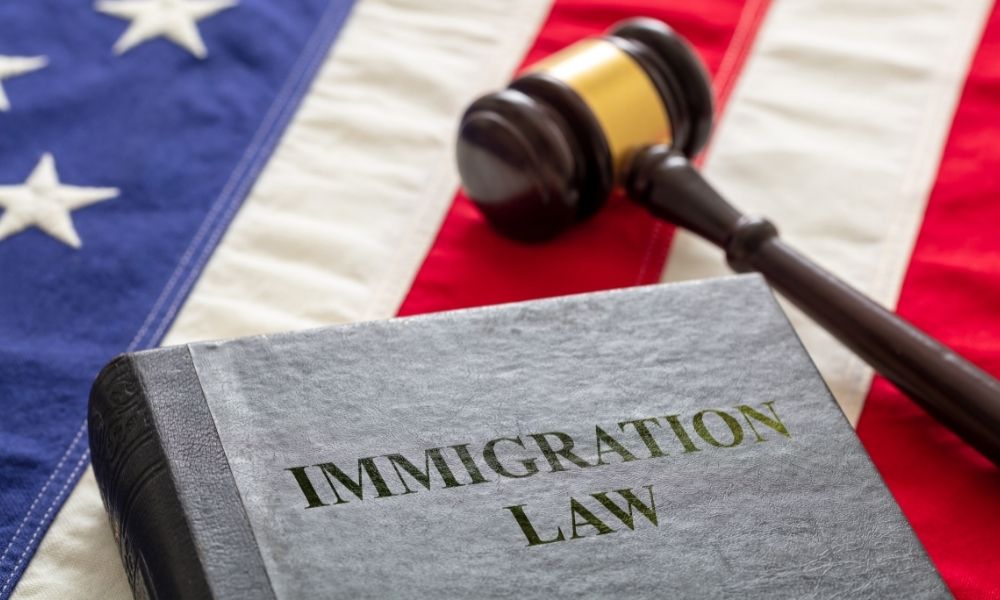Navigating the complexities of immigration law can be challenging, and securing a green card requires thorough understanding and expertise. Hiring a green card lawyer provides you with invaluable guidance and support throughout the process, increasing your chances of a successful application. It’s essential to have someone who can navigate the system efficiently, ensuring all necessary documentation is complete and submitted correctly.
As we explore the merits of hiring an immigration attorney, we recognize their ability to handle nuances and potential obstacles that may arise. From filing to interviews, an experienced lawyer offers a strategic advantage. They bring proficiency and clarity to an otherwise daunting process, ensuring that nothing is overlooked.
Our goal is to demonstrate how enlisting the help of a professional can transform a stressful experience into a manageable journey. With qualified legal assistance, applicants can avoid common pitfalls and understand each step required to obtain a green card. By the end of this article, you will see why investing in experienced legal counsel is a crucial step towards achieving permanent residency.
Understanding Immigration Law and the Green Card Process
Gaining a green card involves engaging with various aspects of immigration law. Our journey covers visa categories, application processing methods, steps to apply, and the path to U.S. citizenship.
Immigration Options and Visa Categories
The U.S. offers several immigrant visa categories. These include family-sponsored, employment-based, and diversity visas. Family-sponsored categories often require a U.S. citizen or permanent resident to sponsor a relative.
Employment-based visas are available for workers with specialized skills or investment interests. The Diversity Visa Lottery aims to diversify immigration from countries with historically low U.S. immigration rates. Understanding the right category is crucial, as it influences eligibility and processing time. The U.S. Citizenship and Immigration Services (USCIS) provides detailed guidance on this.
Adjustment of Status vs. Consular Processing
Adjustment of Status (AOS) and Consular Processing are two primary methods to obtain a green card. AOS is for those already in the U.S. on a valid visa or status, allowing them to apply without leaving the country.
Consular Processing occurs at a U.S. consulate abroad, suitable for applicants residing outside the U.S. Both processes require complete documentation and rigorous screening by the U.S. Department of Homeland Security. Choosing the right method depends on personal circumstances and proximity to a U.S. consulate.
Steps in the Green Card Application Process

The green card application involves multiple steps. Initially, applicants or sponsors must file a petition. Following petition approval, an application for permanent residency is submitted.
Medical exams and interviews are pivotal parts of the process. The USCIS then reviews the application, sometimes requesting additional evidence. Applicants should maintain patience as processing times may vary. Consistent communication with USCIS can offer insights into application status.
Naturalization and Becoming a U.S. Citizen
Naturalization is the step from green card holder to U.S. citizen. This requires meeting specific criteria, such as residency duration and language proficiency. Applicants must demonstrate knowledge of U.S. history and government, typically through a citizenship test.
The naturalization process involves submitting Form N-400, attending an interview, and taking the Oath of Allegiance. U.S. citizenship provides benefits, including the right to vote and access to federal jobs. It symbolizes complete integration into American society, governed by federal law.
Choosing the Right Green Card Lawyer
To select an effective green card lawyer, we must focus on their qualifications, the ethical standards they adhere to, and the financial arrangements they offer. Each of these factors plays a crucial role in securing reliable legal representation for immigration matters.
Qualifications and Experience
When considering potential lawyers, we should prioritize their qualifications and legal experience. It’s crucial to verify that they are members of the American Immigration Lawyers Association (AILA) or the American Bar Association (ABA). These memberships indicate adherence to professional standards and access to valuable resources.
A skilled immigration attorney should have a solid track record with similar cases, including USCIS interviews and obtaining labor certification. This experience ensures that they can address complex issues and navigate the intricate legal processes involved in securing a green card.
Avoiding Scams and Notarios
Unfortunately, the immigration field is not without fraud risks. We must remain vigilant against scams and unauthorized legal services. Only qualified attorneys or accredited representatives should provide legal representation. “Notarios” or immigration consultants often pose as legal experts without the necessary credentials.
We can protect ourselves by requesting official documentation of the lawyer’s credentials. Additionally, contacting local bar associations for further verification can also help in confirming the legitimacy of these professionals.
Assessing Legal Fees and Payment Plans
Understanding the cost of legal services is vital. It’s important to discuss legal fees upfront with potential lawyers. Lawyers should provide a detailed list of their services and associated fees, including the filing fee for any applications.
Payment plans might be available, offering flexibility in managing costs. This transparency allows us to budget effectively and ensures that no hidden charges surprise us later. Open communication regarding financial arrangements will establish trust and clarity throughout the legal process.



















